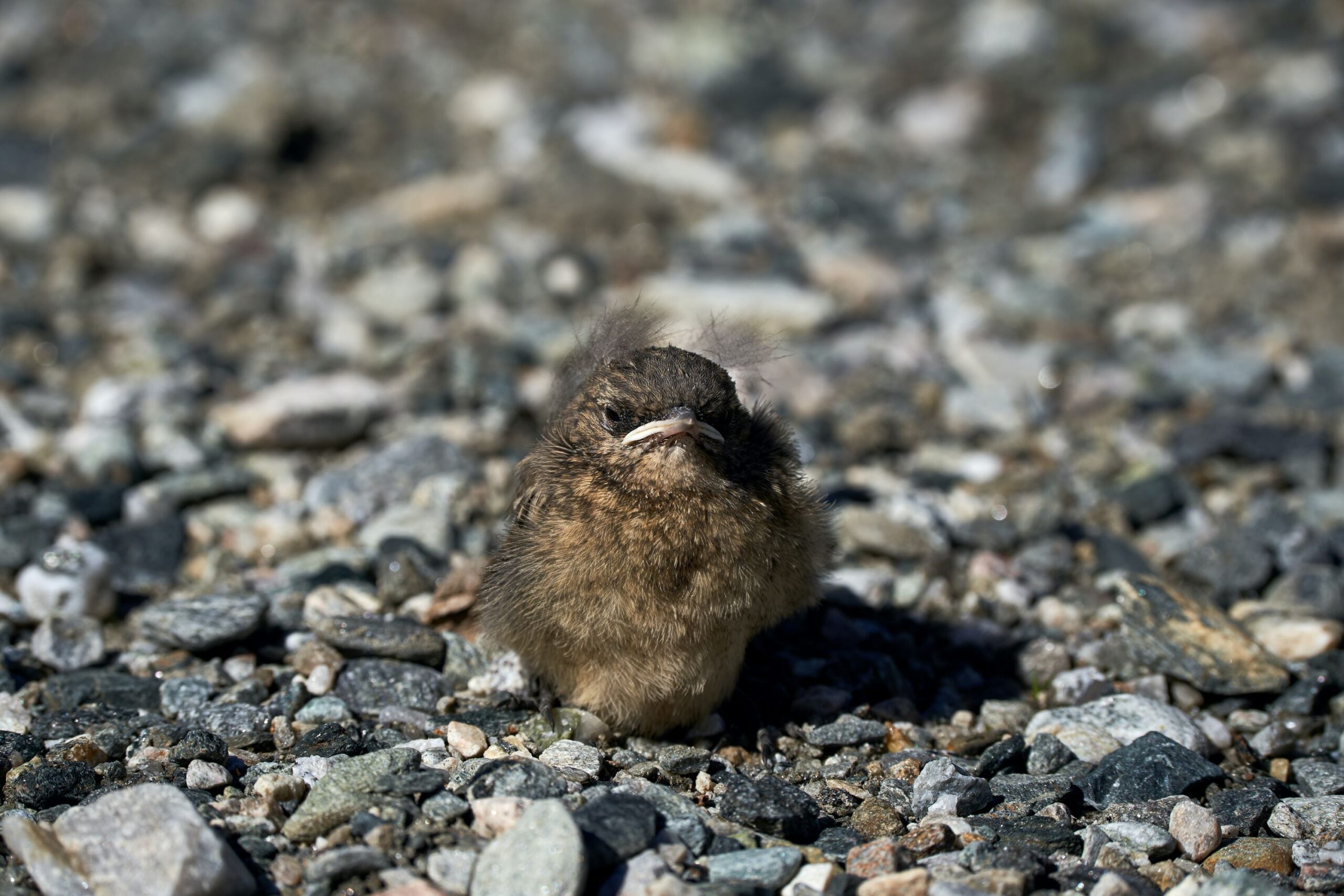If you’re fortunate enough to have a bird’s nest in observable view this nesting season, then you know the joys of watching it. The parents flit back and forth to gather food, bring debris as nest reinforcements, and feed their new hatchlings. But during nesting season, there’s also another common, though not as joyful, experience: finding a baby bird on the ground that seems to have been abandoned or orphaned. It’s hard to know what to do in these circumstances, so we’ve outlined a step-by-step process backed by wildlife experts:
1: Stop and Assess
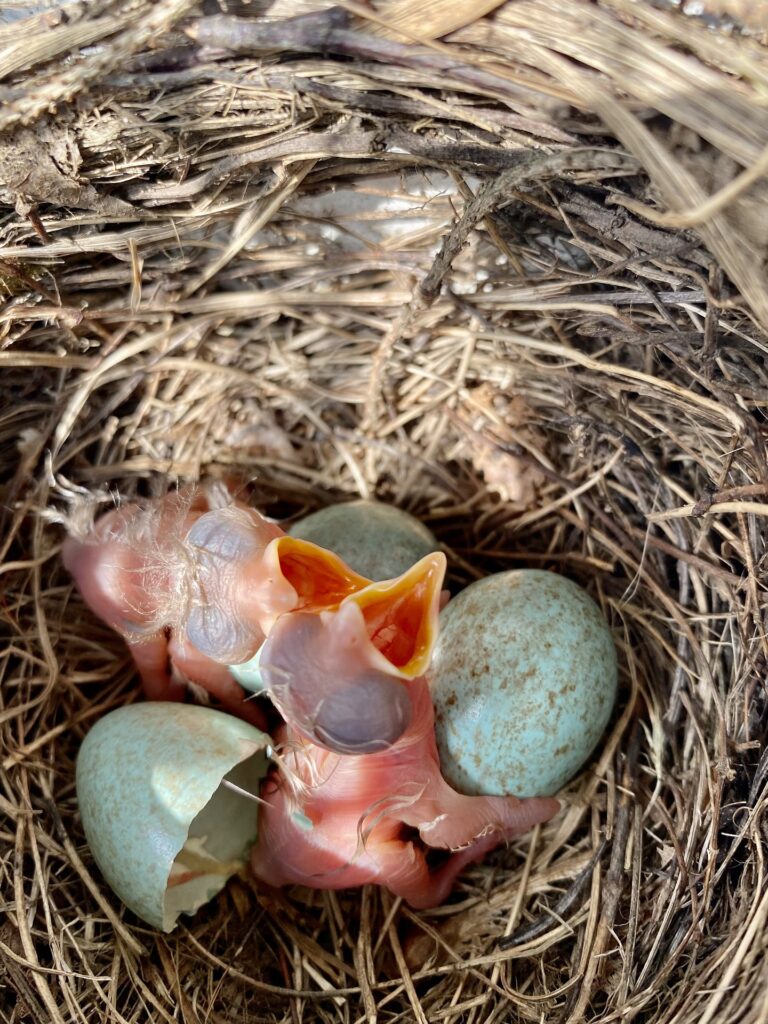
It’s natural to want to help. But sometimes we don’t have all the facts. And sometimes our best intentions can do more harm than good. Before touching or moving the bird, it’s important to stop and assess the situation. That way you can gather the details you need to really help, if needed. For instance, you may think the baby bird is orphaned or abandoned, but its parents may be nearby and caring for it.
Check out the infographic “Found a Baby Bird?” for a quick visual reference of these steps.
2: Observe the Bird
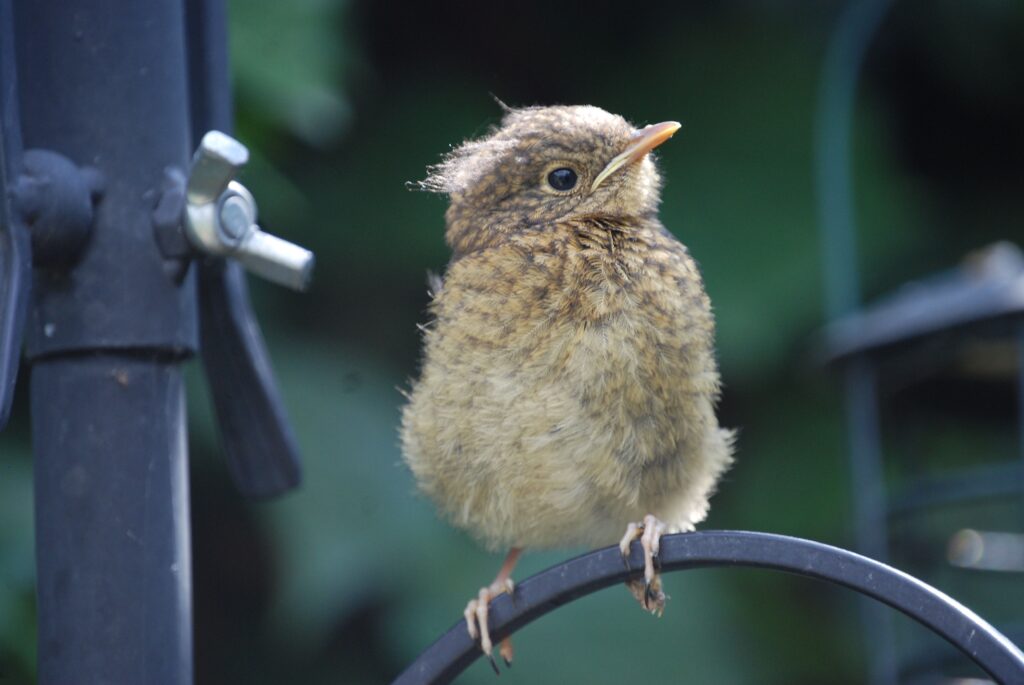
Without touching it, and from a safe distance, take a closer look at the bird. Is it bald, or does it have only a few feathers? Are its eyes still closed? If so, the bird is a hatchling or nestling, and will need help. These baby birds still rely on their parents for food and protection, so they are in a vulnerable position if they’re out of the nest.
On the other hand, does the bird have a lot of feathers, and is it hopping or moving around on the ground? Then it’s a fledgling, and doesn’t need your help. Most of the time, when someone finds a baby bird on the ground, it’s a fledgling. Fledglings are older, though still juvenile, birds, that have outgrown the nest and are getting ready to fly. When you see them out of the nest, they’re usually practicing their new flight skills. And their parents are usually nearby, watching their progress and caring for them. Give them some space.
3: Help a Hatchling
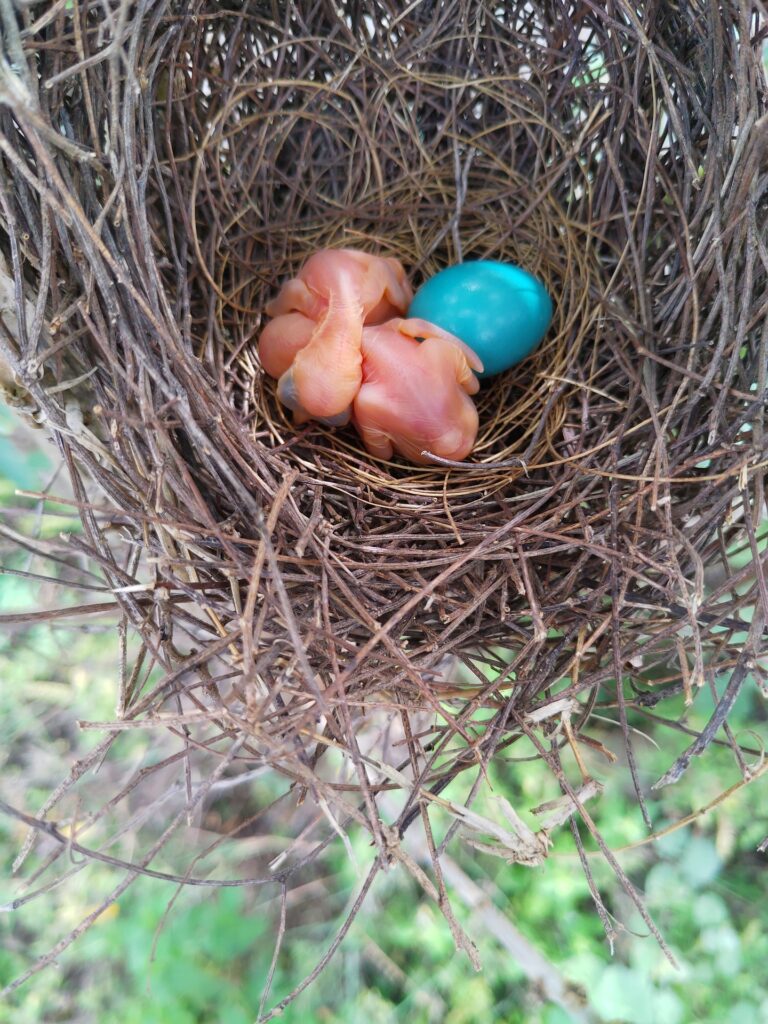
If the bird is a hatchling, look for a nest nearby. Gently pick up the bird and place it back in the nest. If you can’t find a nest, place the baby bird in a sheltered place out of reach from predators, and near where you found it. The hatchling most likely fell out of its nest, and so the parents will likely look for the baby bird in this area.
4: Look for Signs of Injury or Sickness
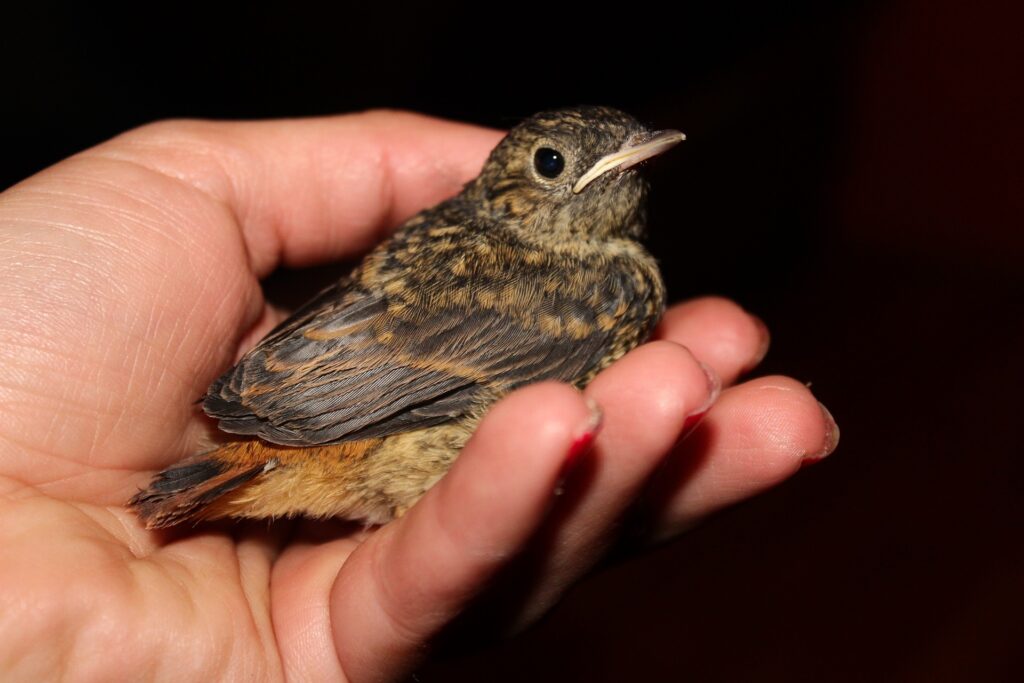
Whether it’s a hatchling, fledgling, or adult bird, an injured or sick bird needs immediate care. Look for signs of sickness or injury, including:
- Matted, dirty, or missing feathers
- Dull eyes
- Visible cuts or wounds
- Limping or imbalanced movement
- Puffing or panting
- Droopy or injured wings
- Not moving when approached
In these cases, the bird will need professional care. Contact your local wildlife rehabilitator. While you wait, place the bird in a box with clothing or a towel, and place the box in a quiet, dark place away from people and pets. Don’t give the bird food or water, and wash your hands thoroughly after handling it. And please remember: wild birds are not pets, and it’s illegal to keep a wild bird in your care.
What to Do if the Baby Bird is Orphaned or Abandoned
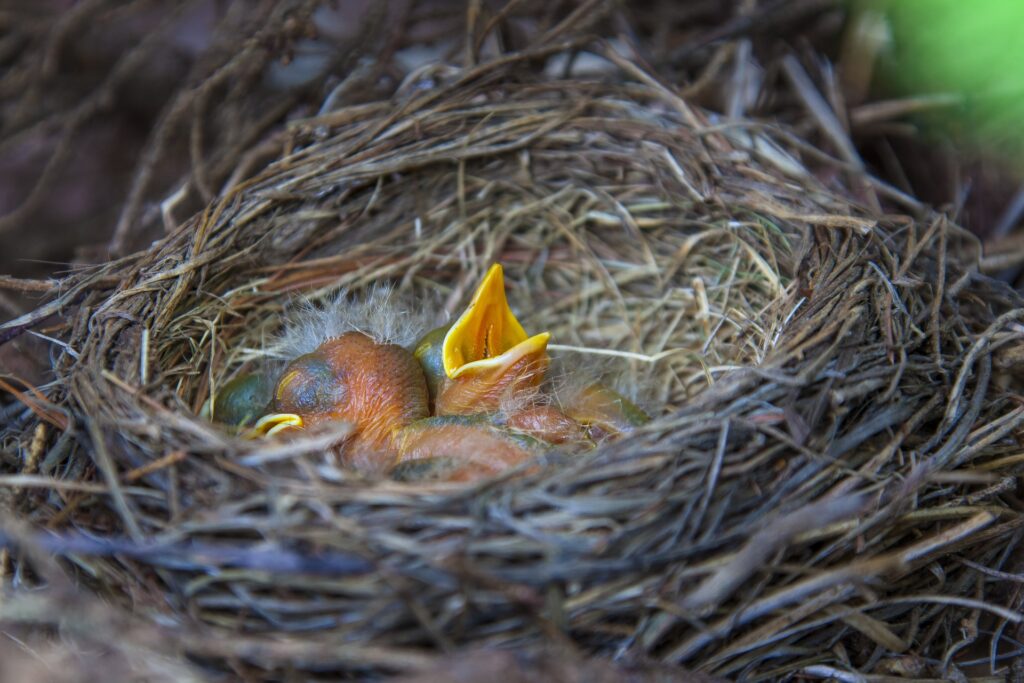
What if you’re sure that a hatchling has been orphaned or abandoned? Maybe you’ve witnessed the birds being attacked by a predator, or die from a window strike. Or perhaps you’ve returned to check on the grounded bird hours later and it’s still in the same spot. What now? Just like an injured or sick bird, place the hatchling in a cloth-lined box and contact your local wildlife rehabilitator immediately. These professionals have the knowledge and tools needed to care for baby birds.
However, keep in mind that, unless you’re sure that the baby bird has been orphaned or abandoned, most often that’s not the case. Most times, the bird’s parents are nearby watching it, often waiting for us to leave so they can tend to it. Or, in cases of a hatchling or nestling falling from the nest, the parents are actively looking for it, and will usually locate it once they hear it squawking.
What to Do if You Find Eggs or Chicks in an Abandoned Nest
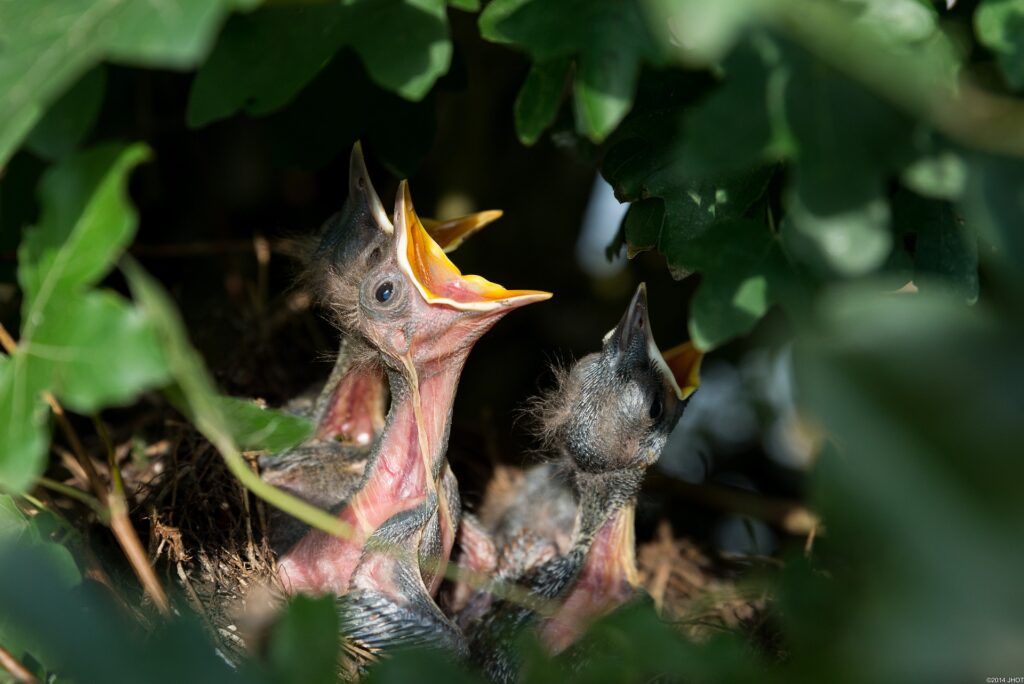
First, consider: is the nest actually abandoned? If you observe the nest from a safe distance, you’ll likely see a parent bird return, since eggs and chicks need care at least every four hours. However, older juvenile birds may need less frequent care, and parents will often minimize their nest visits so as not to attract the attention of predators. Another reason to rest assured: according to The Cornell Lab of Ornithology, birds rarely abandon nests with eggs or young birds in them. But if you suspect that a nest has been abandoned, leaving eggs or chicks behind, call your local wildlife rehabilitator. Do not move the nest or try to care for the eggs or chicks yourself.
Learn More About Caring for Wild Birds
The Chirp Nature Center YouTube channel has tons of videos on caring for our wild bird population. Check it out!

